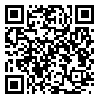Volume 8, Issue 1 (February 2021)
Avicenna J Neuro Psycho Physiology 2021, 8(1): 39-44 |
Back to browse issues page
1- Ph.D. Candidate of Health Psychology, Department of Psychology, Tonekabon Branch, Islamic Azad University, Tonekabon, Iran
2- Associate Professor, Department of Psychology, Tonekabon Branch, Islamic Azad University, Tonekabon, Iran , javadkhalatbaripsy2@gmail.com
3- Associate Professor, Department of Psychology, Tonekabon Branch, Islamic Azad University, Tonekabon, Iran
4- Assistant Professor, Department of Psychology, Tonekabon Branch, Islamic Azad University, Tonekabon, Iran
2- Associate Professor, Department of Psychology, Tonekabon Branch, Islamic Azad University, Tonekabon, Iran , javadkhalatbaripsy2@gmail.com
3- Associate Professor, Department of Psychology, Tonekabon Branch, Islamic Azad University, Tonekabon, Iran
4- Assistant Professor, Department of Psychology, Tonekabon Branch, Islamic Azad University, Tonekabon, Iran
Abstract: (1190 Views)
Background and Objectives: Diabetes is one of the most rampant chronic diseases that is accompanied by numerous psychological problems. The present study aimed to compare the effectiveness of compassion-focused therapy (CFT) and attachment-based compassion therapy (ABCT) on blood glucose level and medication adherence in diabetic patients.
Materials and Methods: This quasi-experimental study was conducted based on a pretest and posttest design. At first, using the available voluntary sampling method, a number of 45 individuals were selected from 300 diabetic patients referred to Alborz Diabetes Association, Alborz, Iran. They were randomly divided into two experimental and one control groups. At the outset, in addition to the hemoglobin (Hb) A1c blood test, they completed a medication adherence questionnaire. Afterward, the first experimental group participated in eight two-h sessions of the compassionate therapy training course, and the second experimental group participated in 10 90-min sessions of the ABCT training course. All three groups received standard treatment for diabetic patients. At the end of the treatment, the HbA1c levels of blood in all three groups were re-evaluated, and again all patients completed the medication adherence questionnaire at the post-test stage. It should be mentioned that the collected data were analyzed using the analysis of covariance.
Results: Based on the results, CFT and ABCT could reduce blood glucose level (HbA1c) (F=5.13, P<0.008, Eta= 0.20) and increase medication adherence (F=2.82, P<0.035, Eta= 0.12) in both of the experimental groups.
Conclusion: The CFT and ABCT can be effective in improving medication adherence and blood glucose control (HbA1c) in diabetic patients. Therefore, it is suggested to provide such training together with other medical interventions as part of comprehensive therapy of diabetes.
Materials and Methods: This quasi-experimental study was conducted based on a pretest and posttest design. At first, using the available voluntary sampling method, a number of 45 individuals were selected from 300 diabetic patients referred to Alborz Diabetes Association, Alborz, Iran. They were randomly divided into two experimental and one control groups. At the outset, in addition to the hemoglobin (Hb) A1c blood test, they completed a medication adherence questionnaire. Afterward, the first experimental group participated in eight two-h sessions of the compassionate therapy training course, and the second experimental group participated in 10 90-min sessions of the ABCT training course. All three groups received standard treatment for diabetic patients. At the end of the treatment, the HbA1c levels of blood in all three groups were re-evaluated, and again all patients completed the medication adherence questionnaire at the post-test stage. It should be mentioned that the collected data were analyzed using the analysis of covariance.
Results: Based on the results, CFT and ABCT could reduce blood glucose level (HbA1c) (F=5.13, P<0.008, Eta= 0.20) and increase medication adherence (F=2.82, P<0.035, Eta= 0.12) in both of the experimental groups.
Conclusion: The CFT and ABCT can be effective in improving medication adherence and blood glucose control (HbA1c) in diabetic patients. Therefore, it is suggested to provide such training together with other medical interventions as part of comprehensive therapy of diabetes.
Article Type: Research Article |
Subject:
Health Education and Promotion
Received: 2020/06/4 | Accepted: 2020/07/31 | Published: 2021/02/2
Received: 2020/06/4 | Accepted: 2020/07/31 | Published: 2021/02/2
| Rights and permissions | |
 |
This work is licensed under a Creative Commons Attribution-NonCommercial 4.0 International License. |




